Sustainability
Resale Impact 2022.9-2023.8
Basic Policy
Reuse is one of the key initiatives toward a circular society, and we believe that the global expansion of our core reuse business will lead to the realization of a sustainable society. Further, by proactively addressing ESG issues and refining what is truly necessary for all stakeholders, we aim to realize a world where we can fulfill our mission of “encouraging more people to focus on what is most important in their lives.”
List of Policies
Click the link and download the various policies related to the ESG activities of the Valuence Group.
Environment
Advancement System
The Valuence Group believes that addressing sustainability is an important management issue for the Group and promotes a variety of initiatives under the supervision of the Board of Directors. The ESG Promotion Committee has been established as a supporting body of the Board of Directors to deliberate and manage ESG-related policies, action plans, measures, etc. The ESG Promotion Committee consists of members appointed by the director in charge of ESG promotion, who is also the Committee chairperson The ESG Office, established as a dedicated ESG department, serves as the secretariat of the Committee and works with the entire Group to drive ESG promotion.
Sustainability related risks are managed cooperatively by the Risk Management Committee, which gathers, analyzes, and manages data on company-wide compliance and risks in a comprehensive and integrated manner, and the ESG Promotion Committee.
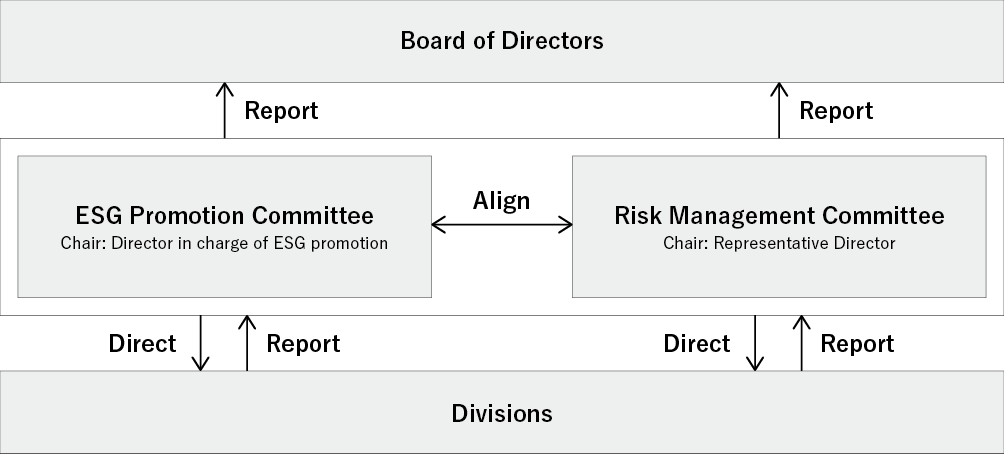
Materiality identification process
Valuence Group have identified 18 ESG issues related to our business and positioned them on our Materiality Matrix. We select issues through the following steps.
Step 1: Identification of candidate themes
The Valuence Group analyzed the expectations and requests from our valued stakeholders including customers, business partners, employees, shareholders, investors, public institutions. By reflecting these stakeholders’ expectations and also taking into consideration our own internal analysis, GRI standards, SASB and major ESG evaluations, we have selected candidate themes to be focused on.
Step 2: Prioritization
Priority was rated to those themes as ESG issues from the perspectives of “importance of the Valuence’s business” considering the financial impact and our corporate philosophy, and “importance of stakeholders” which reflects expectations from GRI standards, SASB standards and major ESG evaluations. As a result, 18 ESG issues were positioned on our Materiality Matrix. Taskforce on prioritization were gathered from managers of each department.
Step3. Validation
Our board of directors reviewed and validated 18 ESG issues and Materiality Matrix.
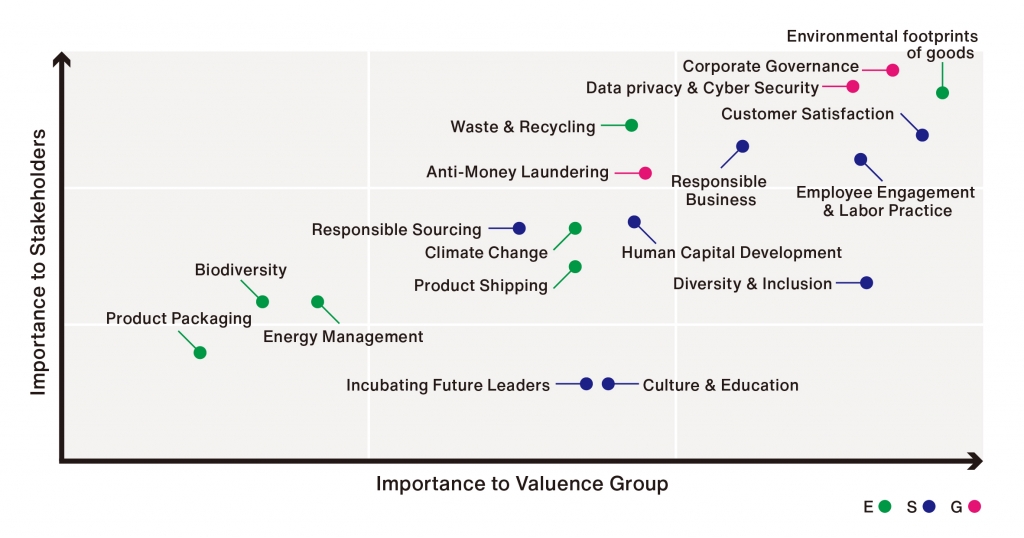


Value Creation Scheme
Based on the 18 ESG topics we have identified, the Group has set its goals for each of the E/S/G items.
・E:Planet Realizing a sustainable planet and circular economy
・S:People Establishing a fair and inclusive society
・G:Transparency Toward a transparent, secure and trusted organization
By confronting global social issues and promoting responsible business activities, we will aim to achieve sustainable growth.
in order to realize a world where everyone can
Planet
Realizing a sustainable planet and circular economy
- Ascertaining ecological footprints of products handled.
- Encouraging waste reductions and recycling.
- Implementing efforts to address climate change.
People
Establishing a fair and
inclusive society
- Increasing customer satisfaction.
- Improving employee engagement.
- Promoting diversity and inclusion.
- Promoting human resource development.
- Practicing responsible procurement.
- Promoting culture and education.
- Developing future leaders.
Transparency
Toward a transparent,
secure and trusted organization
- Enhancing corporate governance.
- Enhancing data privacy and security.
- Implementing measures to combat money laundering.
- Promoting responsible business activities.
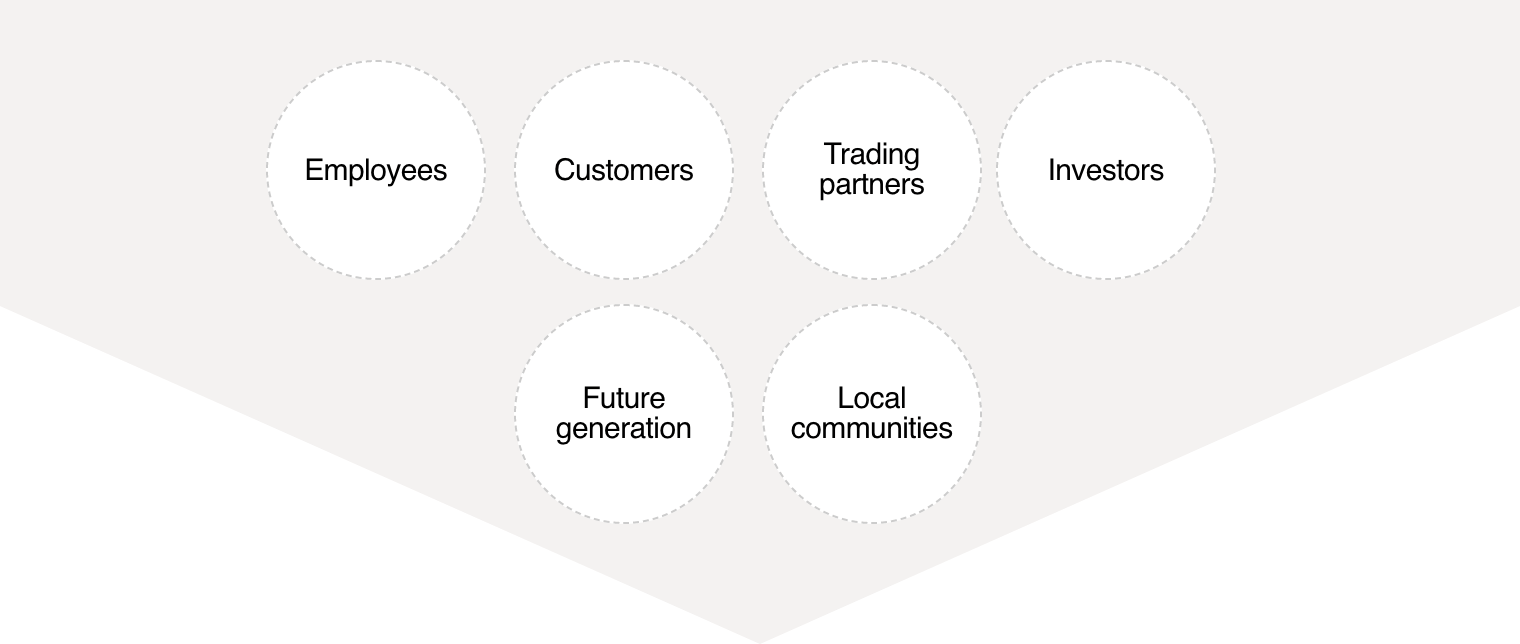
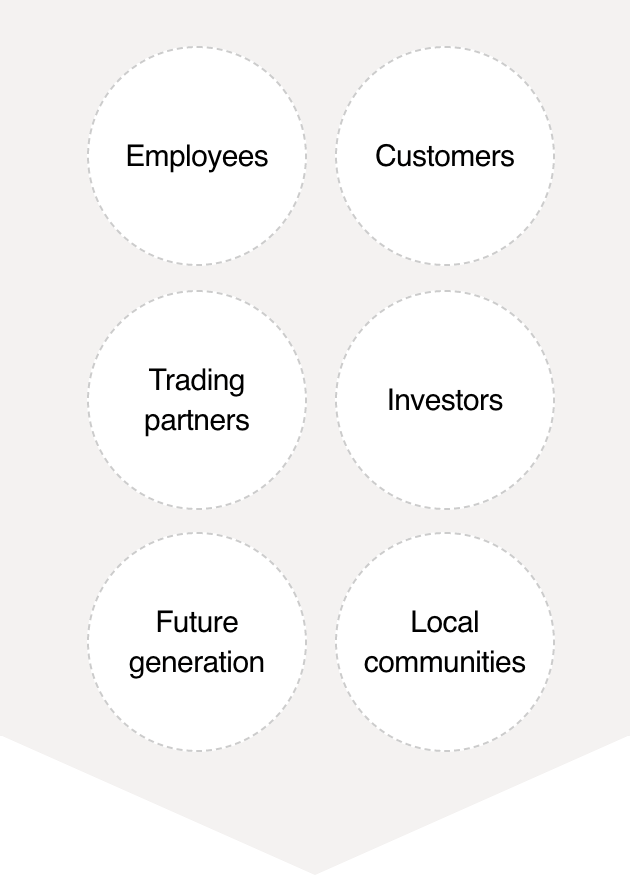


Commitment to Sustainability
We have set specific targets for E (Planet), S (People), and G (Transparency) to strive towards our aim of realizing of a sustainable society and achieving sustainable growth of our company. We will accelerate our sustainability efforts to achieve these goals.
Planet
Carbon
Neutral
Aiming for Carbon Neutrality
Throughout the Value Chain
by FY2030
*Greenhouse gas emissions throughout our value chain include direct and indirect emissions from our operations (Scope 1 and Scope 2) as well as indirect emissions from activities related to our business (Scope 3).
People
Employee
Engagement
Score
Improve
Employee Engagement Score
to 4.2 by FY2025
*The average of each score (on a scale of 1 to 5) in our external engagement survey (conducted by a third party): (1) Company satisfaction, (2) Job satisfaction, (3) Supervisor satisfaction, and (4) Workplace satisfaction.
*Score for FY August 2022: 3.3
Transparency
Ratio of
female directors
Achieve at least 30%
of female representation
on the Board of Directors
by FY2030

Planet
The Valuence Group recognizes that transitioning to a circular economy, mitigating climate change, and coexisting with nature are critical environmental challenges and has established the fundamental environmental policy. Furthermore, the Group is committed to decarbonizing and reducing its environmental footprint through activities such as the development of “Resale Impact,” which visualizes the avoided environmental footprint emissions through reuse, membership in national and international initiatives, and making itself carbon neutral by 2030.
Basic Environmental Policy
Resale Impact
FY 2023 Resale Impact
*Covers luxury goods (watches, bags, jewelry (including bullion), apparel, and accessories) resold at ALLU, STAR BUYERS AUCTION, and wholesale (bullion) during Sep. 2022 to Aug. 2023
While luxury brand goods offer timeless value, such goods also present challenges in terms of raw materials procurement and disposal of goods produced in excess. The entire luxury brand goods industry is orienting toward a circular economy. In this context, the Valuence Group aims to promote reuse even further. The group calculates the avoided environmental footprint* emission of our products, considered one of the most critical materialities of the group, via Life Cycle Assessment (LCA).
The Valuence Group quantifies avoided emission using the Valuence Resale Impact Calculator. This is a unique tool developed by the group to calculate the avoided CO2 emissions, water consumption, energy consumption, and PM2.5 emissions of the products we handle. We label the amount calculated as our Resale Impact.
*Footprint: The environmental impact of greenhouse gases and other substances emitted by individuals, groups, companies, etc., in the course of their lives and activities.
The Concept of Resale Impact
In general, LCA refers to a method for evaluating the environmental impact of a product or service quantitatively through the life cycle of said product or service (resource extraction, raw materials production, product manufacturing, distribution/consumption, disposal/recycling), or at a specific stage in the life of the product or service in question.
According to the Intergovernmental Panel on Climate Change (IPCC), the main body that assesses climate change, there is no doubt that the earth is warming, and the main cause of global warming since the mid-20th century is very likely to be greenhouse gas emissions (such as carbon dioxide) from our human activities.
Source: Ar5 climate change 2014: Impacts, adaptation, and … – IPCC. (n.d.). https://www.ipcc.ch/report/ar5/wg2/
We assume that the environmental impact of CO2 emitted through the value chain from the procurement of raw materials through ultimate product disposal, less the environmental impact arising from transportation and use associated with reuse, represents the contribution to decreased production of goods in the future. We call the results of this calculation our Resale Impact, which we disclose for public view.
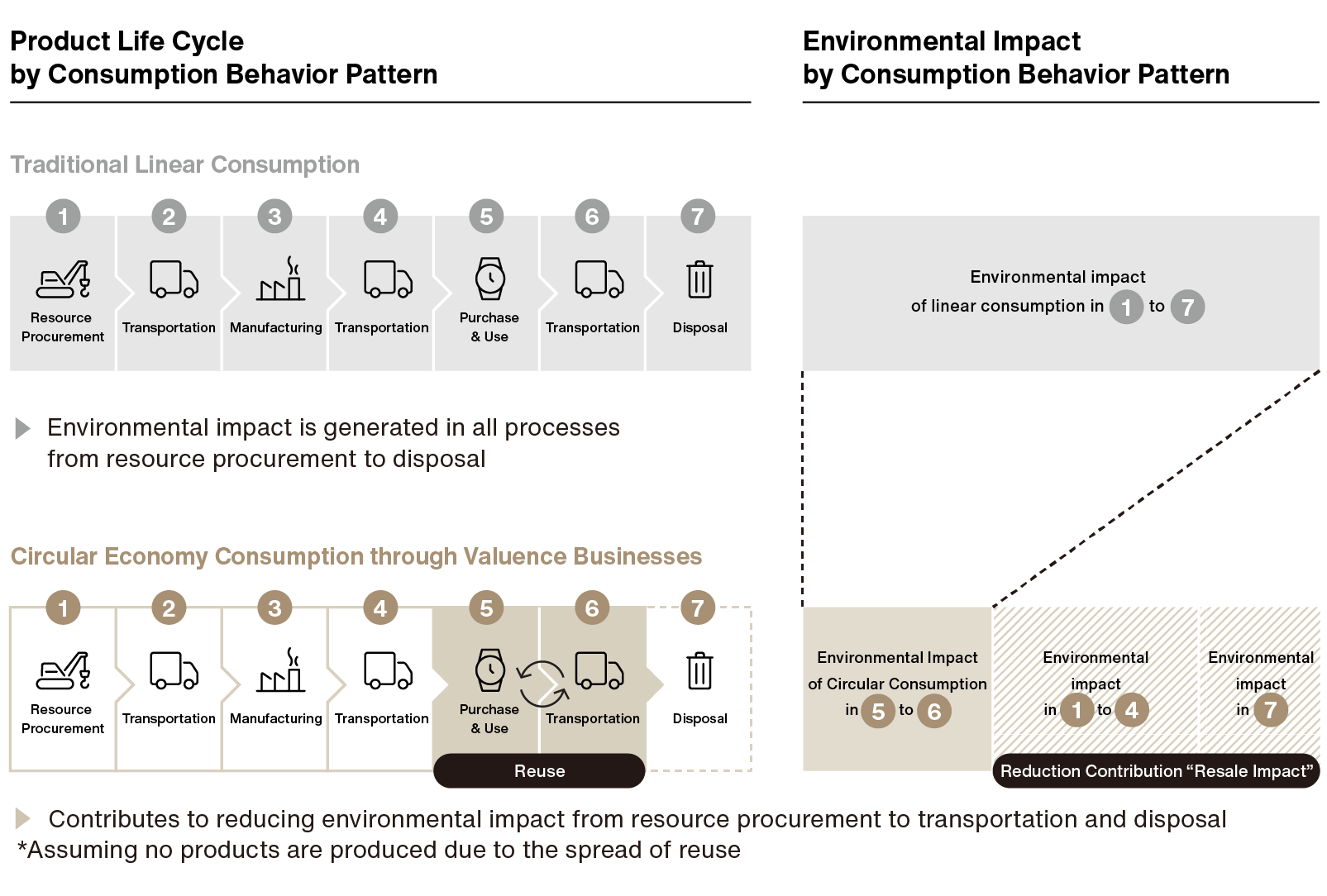
Resale Impact Service Rollout
At ALLU, a vintage brand store, we display Resale Impact on product tags and in-store POP. The Resale Impact label is designed to encourage customers to feel that they have done something good for the environment and to change their behavior by reusing items instead of throwing them away.
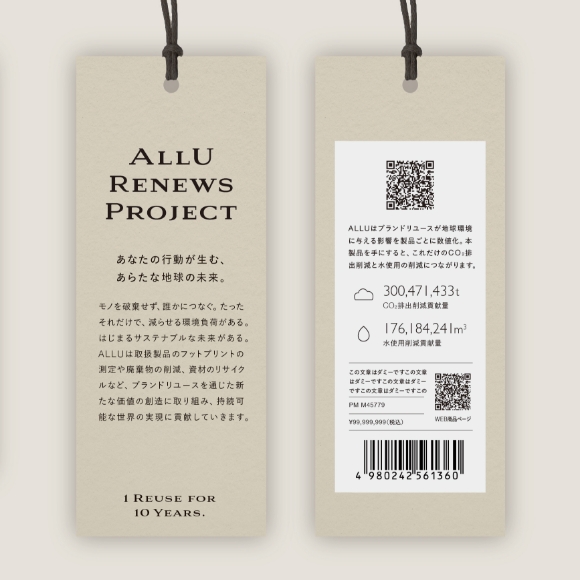
Resale Impact Calculation Standards
- As our customers purchase products the Valuence Group resells, our Resale Impact data represent the amount of environmental impact that can be avoided, not the amount of actual reductions in environmental impact. Presuming a customer buys a reused product instead of a non-reused product, the manufacturing and distribution process for the non-reused product is theoretically omitted; we calculate the environmental impact (in terms of CO2 emissions and water consumption) that the omitted manufacturing and distribution process could have, and show the result as avoided emissions . When calculating Resale Impact, we make assumptions on the amount of emissions from the omitted manufacturing and distribution process, and therefore Resale Impact data can differ from the amount of actual reductions in environmental impact.
- Since we are not a manufacturer of products, our calculation of Resale Impact covers products the Valence Group has resold (watches, bags, jewelry (including bullion), apparel, and accessories).
Our Resale Impact data are not obtained by investigating and verifying the amount of actual environmental impact (CO2 emissions and water consumption) from the manufacturing process for each product. We calculate the environmental impact of the products throughout their life cycles, from material procurement to disposal and recycling, by referring to data from Gabi*, a life cycle assessment (LCA) database. The calculation has been conducted under the supervision of an outside consulting firm. - There may be differences in the results of LCA due to differences in estimation conditions, lack of processes, and other factors.
- The latest Resale Impact calculation results for each product and the figures indicated on the product tag etc., may differ due to the review of calculation results and other factors.
*GaBi is a software program provided by Sphera Solutions GmbH to evaluate the sustainability of products through life cycle assessment.
Network Collaboration
We recognize that solving pressing issues such as climate change and biodiversity requires collaboration and cooperation with industry, local governments, organizations, etc. No company can accomplish this goal alone. The Valuence Group contributes to circular economies in Japan and abroad by acquiring advanced knowledge about circular economies and collaborating with other companies through memberships in domestic and international organizations.

Ellen MacArthur Foundation
The Ellen MacArthur Foundation is an international charitable organization that develops and promotes circular economies.

Japan Sustainable Fashion Alliance
The Japan Sustainable Fashion Alliance is a national organization promoting the transition to a sustainable fashion industry
Approaches to 2030
The Valuence Group aims to make itself carbon neutral by 2030, earlier than the global target of 2050. To achieve this, we will work to grasp our present situation, including calculating the greenhouse gas emissions, formulate a 2030 decarbonization roadmap, and discuss specific measures to reduce environmental impact.
Greenhouse gas emissions in FY23 and approach towards 2030
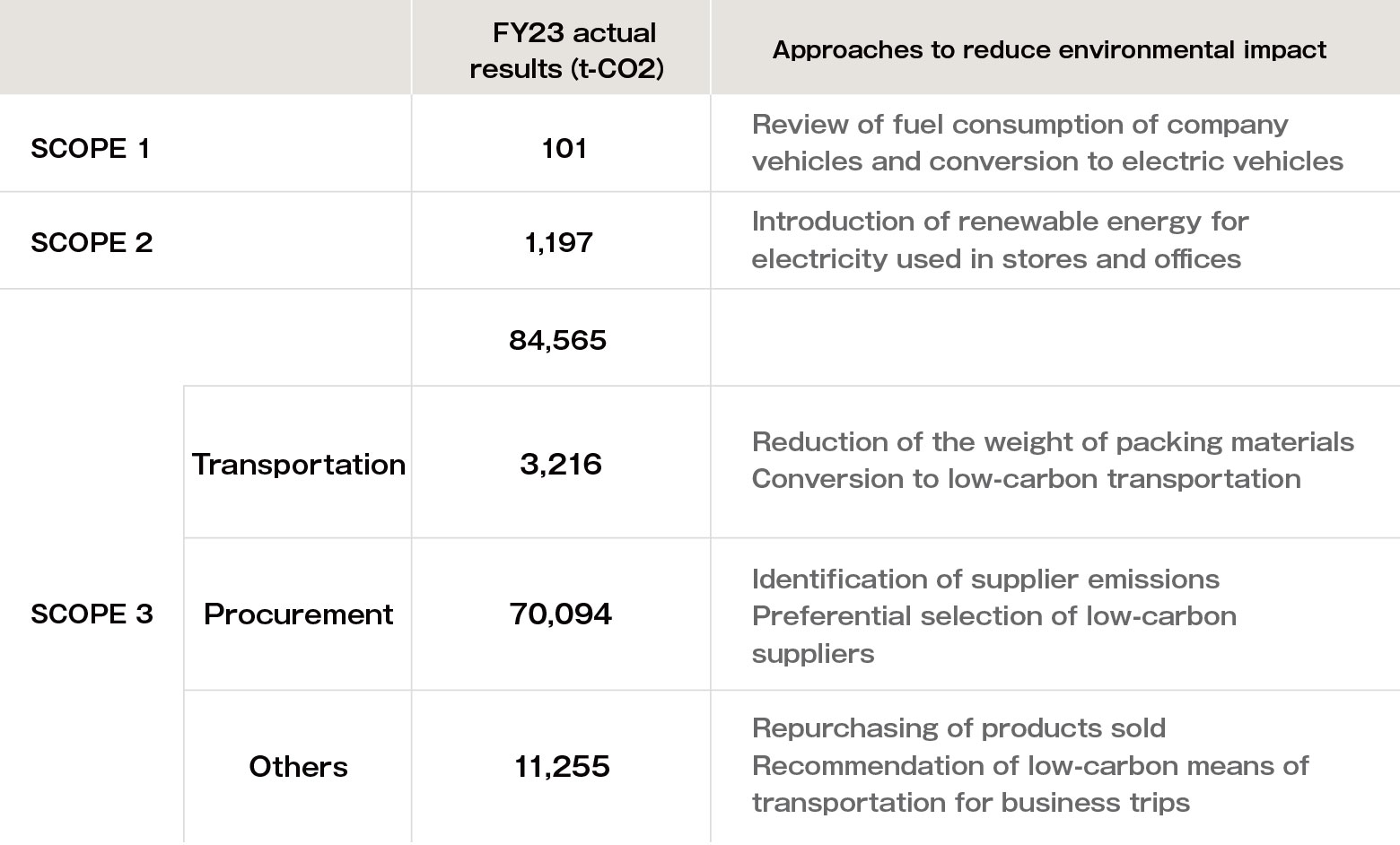
Scope 1: Greenhouse gas emissions from business-use vehicles and air conditioning used for buying offices, administrative offices and warehouses
Scope 2: Greenhouse gas emissions from electricity used in buying offices, administrative offices, and warehouses
Scope 3: Greenhouse gas emissions generated indirectly in the value chain (e.g., procurement of goods and services, transportation of goods)
Commitment to the SBT initiative
The Valuence Group has submitted a letter of commitment to the SBT Initiative, which certifies science-based greenhouse gas reduction targets in line with the Paris Agreement. Valuence Group will set a target to mitigate the rise in global temperature to 1.5 degrees Celsius compared to pre-industrial times and will aim to obtain SBTi approval.
SBT (Science Based Targets) Initiative
Disclosures Based on TCFD Recommendations
In September 2022, the Valuence Group has become a supporter of the TCFD (Task Force on Climate-related Financial Disclosures) established by the Financial Stability Board and joined the TCFD Consortium. We disclose our analyses and evaluation on climate change risks and opportunities based on the TCFD recommendations.
Disclosures in Accordance with TCFD Recommendations
TCFD (Task Force on Climate-related Financial Disclosure)
TCFD Consortium

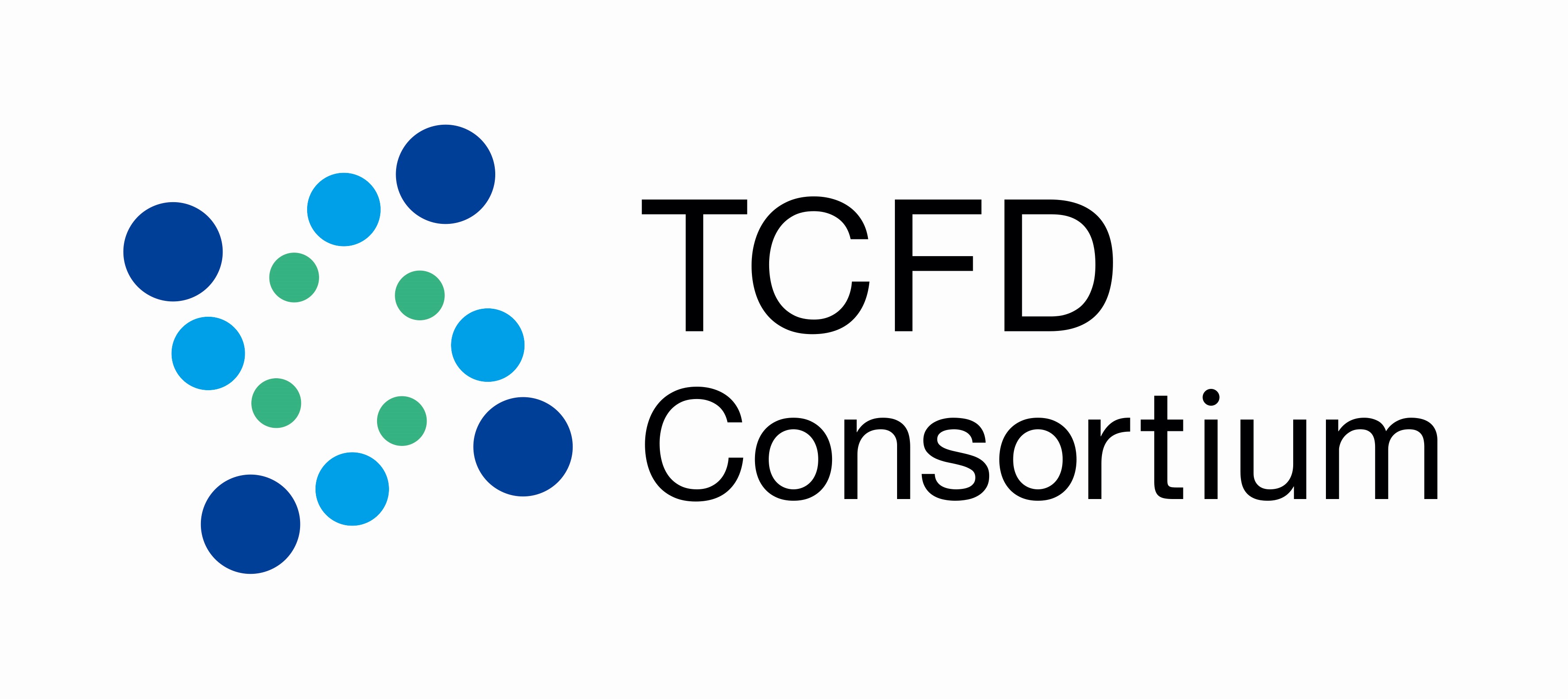

People
The Valuence Group strives to create a work environment where gender, ethnicity, social background, sexual orientation, age, and disability diversity is accepted and respected. Under our various policies, we strive to create a workplace where the individual personality of every person is respected, and each employee feels fulfilled working in their way.
Human Rights Policy
Initiatives for Diversity
Initiatives
-

Dual Career System (externl side jobs, multiple roles)
Diversify our business structure by allowing side hustles and internal duplication of work. We support challenges that lead to our mission “To Encourage More People to Focus on What is Most Important in Their Lives”
-
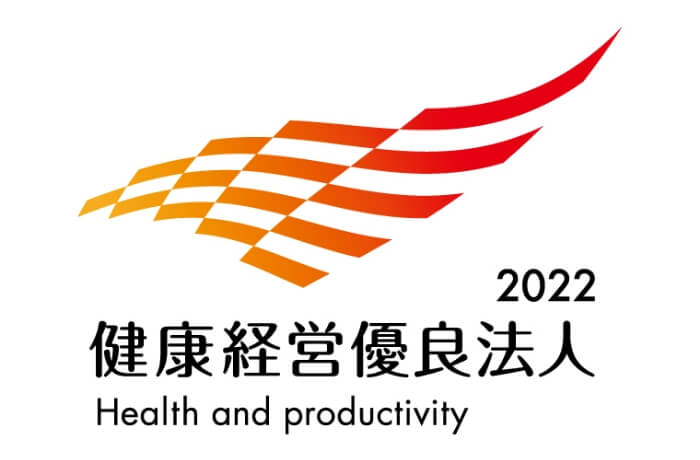
Certified as a Health & Productivity Management Outstanding Organization 2022
The Valuence Group engages in health support and health management as a base for better living among our employees. We were recognized as a Certified Health & Productivity Management Outstanding Organization by the Ministry of Economy, Trade and Industry.
Transparency
The Valuence Group considers enhancing and strengthening corporate governance one of its most important tasks. Under its various policies, the Group aims to improve management efficiency and transparency, ensure prompt and fair decision-making, and continuously increase its corporate value.
Corporate Governance
Internal Control System
Compliance Policy
Information Security Policy
Actions
Below are some of the actions the Valuence Group is taking to support our stakeholders with whom we have close relationships.
-

BLUE BATON:
What you can do right now
for children and the planetThis is a donation program that started on Children’s Day, May 5, 2015, with the hope of creating a society where all children have equal opportunities. All proceeds from the sale of customers’ unworn clothes will be donated to Chance for Children, a public interest incorporated association, to contribute to activities to stop the cycle of poverty among children in Japan.
-

Donations to Save the Children Japan
Supporting the future of childrenSince 2014, Valuence Group has continued its partnership with Save the Children Japan, a public interest incorporated association, to support the future of children around the world.
ESG Data
Click the link and find more information about ESG(Environment, Social and Governance) data related to our business activities in the list.
View More

